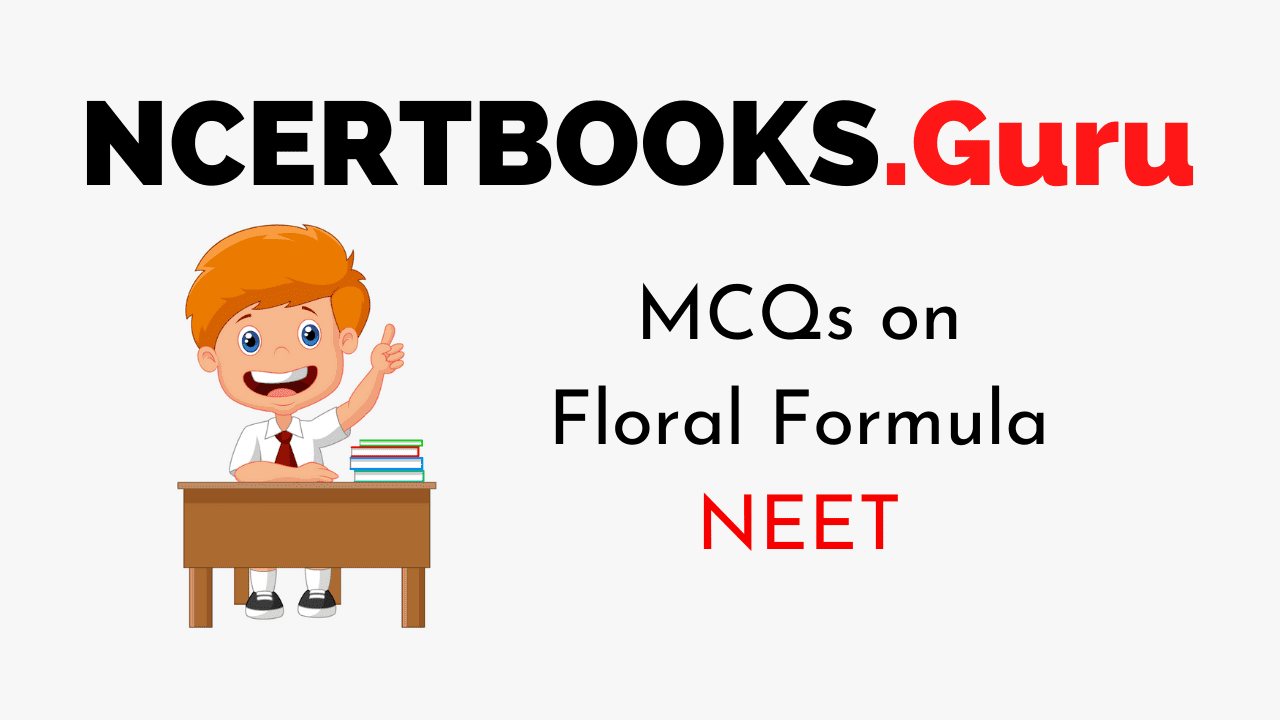NEET Biology is the scoring paper in the medical entrance examination. Here, you will discover the NEET Biology MCQ Questions for all Concepts as per the latest syllabus. Practice more on a regular basis with these NEET Biology objective questions on air pollution and improve your subject knowledge & problem-solving skills along with time management. NEET Biology Floral Formula Multiple Choice Questions make you feel confident in answering the question in the exam & increases your scores to high.
MCQs on Floral Formula
1. Tricarpellary, syncarpous gynoecium is found in these flowers
(a) Liliaceae
(b) Poaceae
(c) Fabaceae
(d) Solanaceae
Answer
Answer: (a)
2. Perigynous flowers are found in
(a) Rose
(b) China rose
(c) Cucumber
(d) Guava
Answer
Answer: (a)
3. Tulip, onion, cucumber, guava, potato, brinjal, mustard, china rose – amongst these, how many have superior ovary?
(a) Six
(b) Five
(c) Four
(d) Three
Answer
Answer: (a)
4. Standard petal of a papilionaceous corolla is known as
(a) carina
(b) corona
(c) vexillum
(d) pappus
Answer
Answer: (c)
5. Free-central placentation is found in
(a) Citrus
(b) Brassica
(c) Argemone
(d) Dianthus
Answer
Answer: (d)
6. _________ is the large shield-shaped cotyledon, the wheat grain possesses in its embryo
(a) coleoptile
(b) scutellum
(c) coleorhiza
(d) epiblast
Answer
Answer: (b)
7. These flowers show radial symmetry
(a) Cassia
(b) Pisum
(c) Trifolium
(d) Brassica
Answer
Answer: (d)
8. Keel is the characteristics feature of flower of
(a) tomato
(b) aloe
(c) Indigofera
(d) tulip
Answer
Answer: (c)
9. These many plants among Salvia, Sesbania, Mustard, Indigofera, Aloe, Allium, groundnut, turnip, and radish gram possess stamens with diverse lengths in their flowers
(a) six
(b) five
(c) four
(d) three
Answer
Answer: (c)
10. ![]() is the floral formula of:
is the floral formula of:
(a) Brassica
(b) Petunia
(c) Sesbania
(d) Allium
Answer
Answer: (b)
